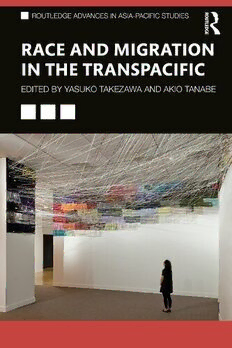
Race and Migration in the Transpacific PDF
280 Pages·2022·12.254 MB·English
Most books are stored in the elastic cloud where traffic is expensive. For this reason, we have a limit on daily download.
Preview Race and Migration in the Transpacific
Description:
Looking at a range of cases from around the Transpacific, the contributors to this book explore the complex formulations of race and racism emerging from transoceanic migrations and encounters in the region.Asia has a history of ceaseless, active, and multidirectional migration, which continues to bear multilayered and complex genetic diversity. The traditional system of rank order between groups of people in Asia consisted of multiple “invisible” differences in variegated entanglements, including descent, birthplace, occupation, and lifestyle. Transpacific migration brought about the formation of multilayered and complex racial relationships, as the physically indistinguishable yet multifacetedly racialized groups encountered the hegemonic racial order deriving from the transatlantic experience of racialization based on “visible” differences. Each chapter in this book examines a different case study, identifying their complexities and particularities while contributing to a broad view of the possibilities for solidarity and human connection in a context of domination and discrimination. These cases include the dispossession of the Ainu people, the experiences of Burakumin emigrants in America, the policing of colonial Singapore, and data governance in India.A fascinating read for sociologists, anthropologists, and historians, especially those with a particular focus on the Asian and Pacific regions.
See more
The list of books you might like
Most books are stored in the elastic cloud where traffic is expensive. For this reason, we have a limit on daily download.
